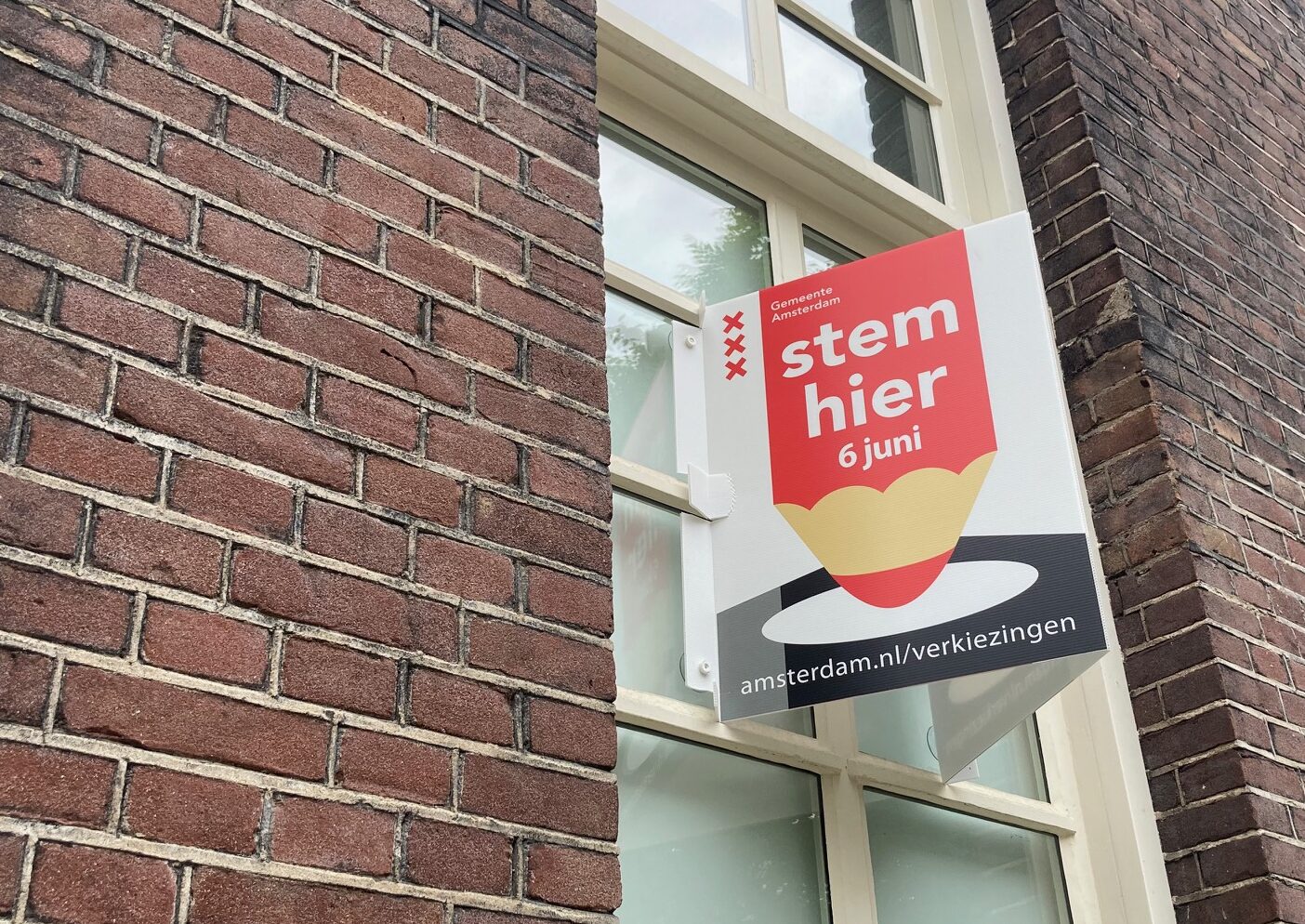Local councils wake up to “expat voters” ahead of elections
Senay Boztas
International residents make up well over a tenth of the population in the biggest Dutch cities and some councils believe their voices should be more strongly heard when it comes to voting and local democracy.
In Amsterdam, D66 councillors this month asked the executive to measure whether internationals are properly represented in local votes, citizen panels, questionnaires and debates – and whether the city is doing enough to inform them about how they can participate.
In Leiden, where one in seven people has a foreign passport, there is an international panel of 120 people, who are asked to share their thoughts on subjects such as language learning, volunteering, living in the city and sustainability.
And in The Hague, councillors are organising a “meet your city council” day in September. With local elections upcoming in 2026, more parties are explicitly canvassing the foreign vote. Dutch News research at the last local elections indicated around half the parties had some information in English to encourage international voters.
According to Erik Schmit, D66’s spokesman on democracy in Amsterdam, internationals should be invited to contribute, rather than being scapegoated for city problems like segregation and high housing costs.
“In our city, there are 90,000 plus internationals, be it knowledge immigrants, international students or status holders [refugees with a residency permit],” he said.
“And I think they play an important role, culturally, societally and economically. More than 10% of our inhabitants have an international background, but if I look at our participation processes – the elections, panels, citizens coming to talk to the city council – their presence is not on par. As a democrat, I believe that we should have representation when we make our decisions.”
A report by Decisio found that in 2022, Amsterdam counted 90,570 highly skilled migrants, 59,840 labour migrants and 15,515 international students, plus 6,175 refugees with a residency permit – almost a fifth of the population.
“I think it’s important that the participation of internationals can grow, so the voice of the internationals will be heard in local politics,” said Schmit. “That’s good for the city… Instead of scapegoating, I would say, invite them to be part of the democratic process.”
“United nations”
In a general election on October 29, only Dutch nationals who are over 18 can vote. However, in local council elections on March 18, 2026, EU citizens can also vote, as well as non-EU citizens who have lived in the Netherlands for at least five years.
This means it is important to inform them about their rights, according to The Hague’s D66 councillor, Andrew van Esch who will co-present the “meet your city council” event.
“In the neighbourhood where I live, about 45% of people are internationals,” he said. “Part of our newsletter is in English, and there is one meeting of the neighbourhood committee in English every year…We want to have reflection from the international citizens about living in The Hague: we want to listen. And at the same time, we want to create some kind of awareness that there is a city council and that they could be involved.”
A perception that all internationals have tax-free income and boost real estate prices is incorrect, he says, pointing out The Hague has a large population of Ukrainian refugees, Polish people as well as Bulgarians and Romanians. “It’s also very important to give an international feeling to Dutch citizens,” he added. “We are the ‘united nations’ here, and that’s wonderful and gives great opportunities.”
Participation
In Leiden, an evaluation of policy to involve internationals from 2020 to 2024 has already demonstrated success. Council spokeswoman Cora van der Elst said including the international population is logical in a region that wants to promote its science park, space tech and unmanned systems industry.
“International residents make up an important and growing part of our city: right now one in seven Leidenaren has a foreign passport,” she said. “That calls for a welcoming and inclusive approach, not just in service provision but in participation too.”
Alongside the international panel – which is consulted on all kinds of topics – foreign residents are actively approached to take part in focus groups, also in English. The digital participation programme online translates Dutch texts into 10 languages; in Amsterdam, said spokesman Joric Kerstens, district websites offer options for translation while local panel participants are offered the use of a translator.
Amsterdam
Under Amsterdam’s participation bylaw, the city is required to make an effort to include (underrepresented) groups that will be impacted by a project – although whether this actually happens has not been evaluated.
“If internationals are identified as an important stakeholder, more effort can be made to include them in processes, for example by offering translators or information in English,” Kerstens said.
Foreign perspectives could also help solve Dutch city problems. “I can imagine that internationals also feel a responsibility to society, living here, working here, going to the cultural scene,” added Schmit. “Sometimes having a different point of view on things can actually reveal solutions.”
If you have any comments about how your city is involving internationals in the elections, please get in touch via editor@dutchnews.nl.
Thank you for donating to DutchNews.nl.
We could not provide the Dutch News service, and keep it free of charge, without the generous support of our readers. Your donations allow us to report on issues you tell us matter, and provide you with a summary of the most important Dutch news each day.
Make a donation